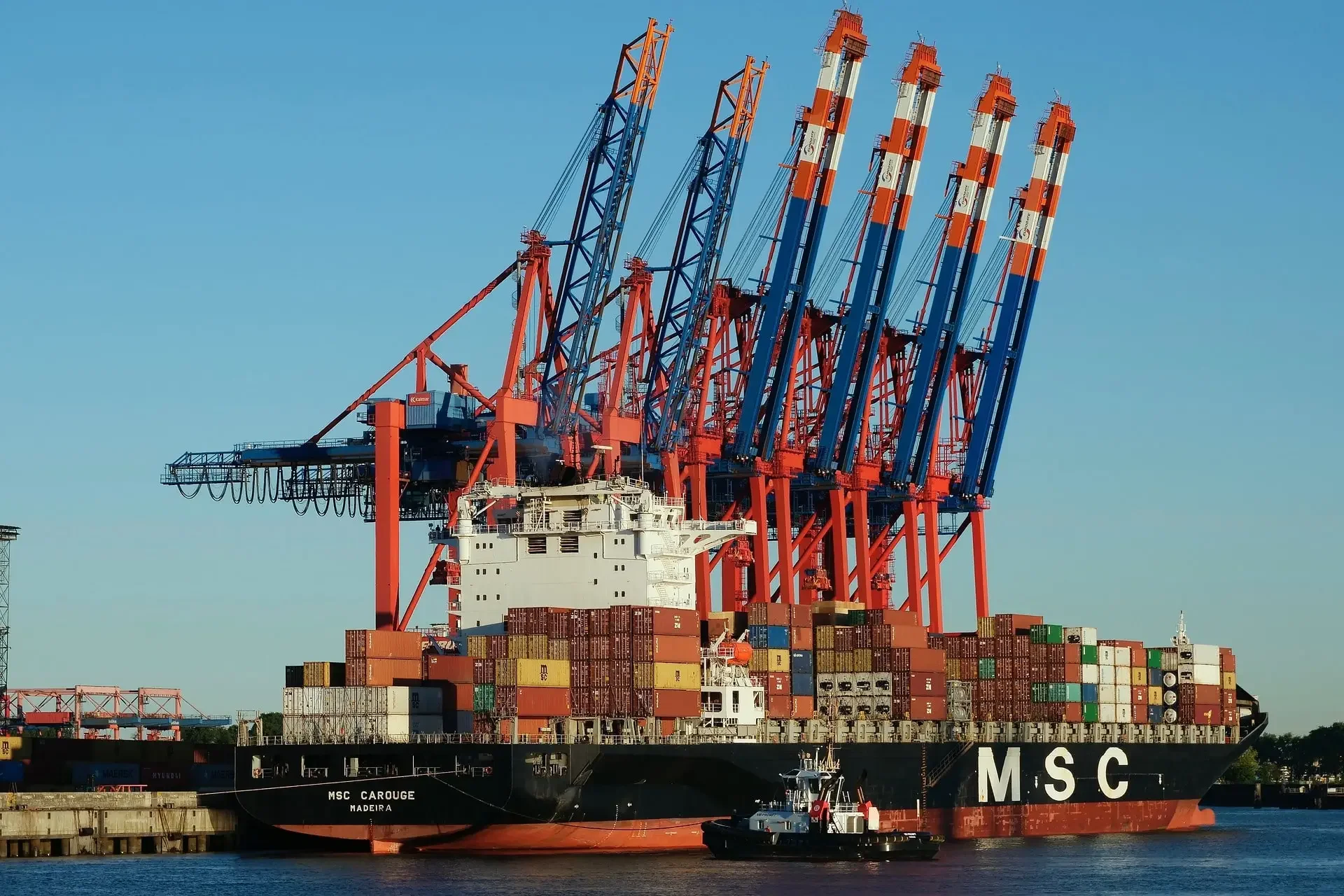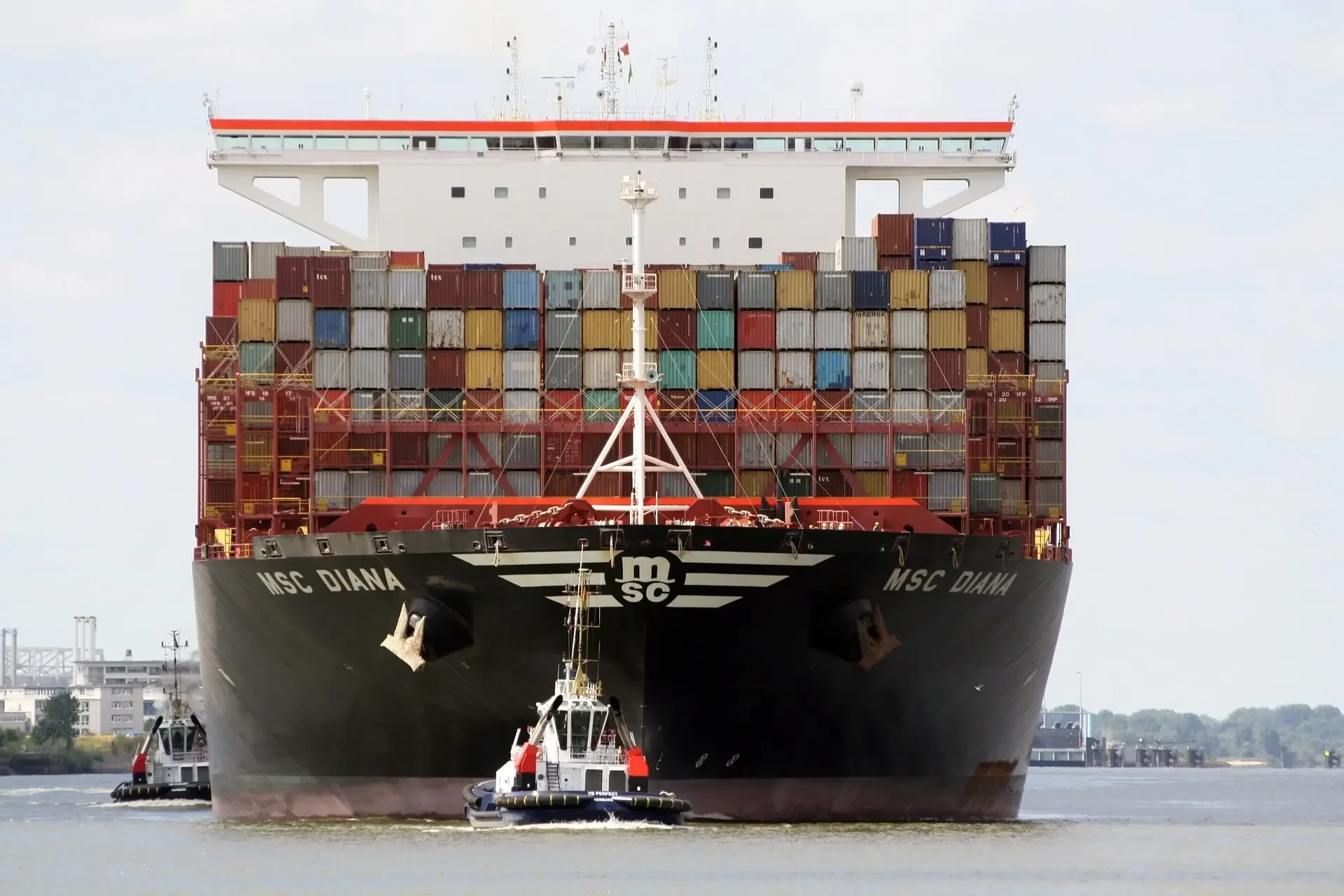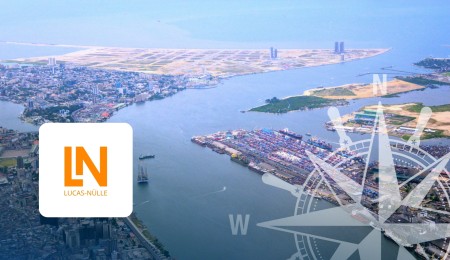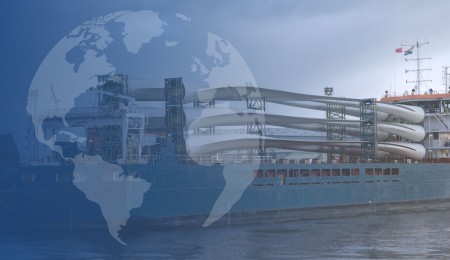
Eine Gegenüberstellung: HHLA und MSC im Kurzporträt
Hamburger Hafen und Logistik AG, a central pillar of Hamburg's port infrastructure, has established itself over decades as a key player in the handling and optimization of international goods flows. Its role goes far beyond local importance and has a lasting impact on the European trading landscape.
On the other side of the deal is Mediterranean Shipping Company S.A. (MSC), based in Switzerland - a driving force in the global shipping industry. As one of the largest shipping companies in the world, MSC offers a comprehensive range of transport and logistics services and is a key player on the international stage. Its commitment to Hamburg is more than a commitment to the location: it is a strategic move that underlines the global importance of the port and builds a bridge between local expertise and international reach.

Hamburg’s strategic withdrawal reshuffles the cards – and opens the door for MSC’s entry
The recent agreement between the City of Hamburg and Mediterranean Shipping Company S.A. (MSC) signals a fundamental realignment in the ownership structure of Hamburger Hafen und Logistik AG. According to this agreement, the City of Hamburg plans to reduce its share from around 70 to a narrow majority of 50.1%. In return, MSC has the opportunity to acquire up to 49.9 of the shares, a constellation that gives both parties considerable influence.
On October 23, 2023, MSC made a concrete takeover offer for all issued A shares of HHLA, at a price of EUR 16.75 per share. This offer reflects MSC's financial commitment and long-term ambition to establish a stable partnership with HHLA and the City of Hamburg.
A key factor in MSC's interest in HHLA is, above all, the rail and truck operator Metrans. The Czech railway company, which is wholly owned by the HHLA Group, covers the whole of Germany with its transport network, but above all Eastern Europe and the Mediterranean region. MSC therefore also benefits from a very broad and extensive network of domestic transport and infrastructure.
Shared vision despite differing interests: HHLA management agrees
After careful consideration, the management of HHLA, consisting of the Executive Board and the Supervisory Board, has made a unanimous decision to accept the takeover offer from MSC. This decision was based on a thorough analysis of the potential long-term benefits of such a partnership. The Executive Board and Supervisory Board recognize MSC's participation as an essential addition to HHLA's resources and expertise that could serve as a catalyst for future growth and innovation.
This partnership is also seen as a strategic step to increase HHLA's competitiveness, expand its market presence and develop innovative logistics solutions. These solutions should not only meet the requirements of the Port of Hamburg, but also appeal to the global market and thus consolidate HHLA's position as a leading logistics company.
Concerns at the heart of HHLA
The conviction of HHLA's management regarding the deal with MSC is not supported everywhere - there is a simmering atmosphere within the ranks of the workforce. The Group Works Council is particularly critical of MSC's involvement. The main concerns are job security and the preservation of entrepreneurial independence. There is a fear that HHLA's independence could be at risk, for example if decisions are increasingly made in the interests of the new major shareholder and less in the interests of the employees. There is also concern that long-term job guarantees and the preservation of current working conditions are not sufficiently taken into account in the takeover offer. These fears reveal a deep-rooted uncertainty about the future direction of HHLA under the new ownership structure.
But the discontent about MSC's involvement extends far beyond the management levels of HHLA and has led to a remarkable reaction among employees. At the HHLA Burchardkai terminal, the situation escalated into a spontaneous, so-called "wildcat strike" - an unusual and clear expression of protest against the planned partial sale to MSC. Although not legally intended for such purposes, the employees demonstrated their concern about possibly being ignored in the decisions surrounding the deal.
And so, in response to the work stoppages, HHLA management resorted to labor law measures, including issuing warnings, while trying to restart operations. The employees demanded talks with Senate representatives about the controversial deal, a demand that was rejected by the responsible senators. A meeting with the Senate has been scheduled, mediated by the ver.di union, although the exact content is still unclear.
Despite the protests, Economics Senator Melanie Leonhard and Finance Senator Andreas Dressel are defending the partial sale of HHLA. They emphasize the strength that MSC brings as a partner and its commitment to extensive investments, compliance with collective agreements and the ongoing involvement of employees in decisions. The final settlement of the deal is planned for the middle of next year - provided that the citizens agree.
Conclusion: Many opportunities, challenges and open questions
MSC's strategic involvement in HHLA marks a turning point in the history of the Port of Hamburg. While HHLA management and the City of Hamburg support the deal, the workforce views it with scepticism and concern. Key issues here are job security, maintaining the corporate culture and preserving entrepreneurial independence.
The partnership has both the potential to strengthen the Port of Hamburg's position in global trade and the challenge of finding a balance between global expansion and local interests. The next steps include intensive negotiations and discussions between HHLA, MSC, employee representatives and the City of Hamburg to clarify details of the terms of the involvement and measures to protect the interests of employees and the local community.
The approval of the citizens and the implementation of the deal are planned for the middle of next year. Developments in the coming months will be crucial to understanding and shaping the future shape of the Port of Hamburg and its stakeholders.
In the long term, MSC's involvement in Hamburger Hafen und Logistik AG (HHLA) could have a transformative effect on various levels - from individual employees to the entire port industry and the local community. For HHLA employees, despite the assurances to comply with collective agreements and to involve them in decisions, the deal entails some uncertainties - particularly with regard to job security and working conditions. They are concerned about whether the long-term preservation of jobs and the unique corporate culture can really be guaranteed.
On the economic level, however, the partnership with MSC could strengthen the Port of Hamburg and consolidate its position as a central European trading hub. MSC's global reach and resources promise to open up new business opportunities and increase the port's efficiency and competitiveness. This in turn could have a positive impact on the local economy and employment by creating new jobs and contributing to the region's economic vitality.
However, the local community faces the challenge that increasing global control by an actor such as MSC could reduce local control and influence over the port. This development raises questions about the long-term impact on local decision-making and the prioritization of community interests. It remains to be seen in the coming years whether the opportunities on the one hand and the concerns on the other hand actually materialize.






